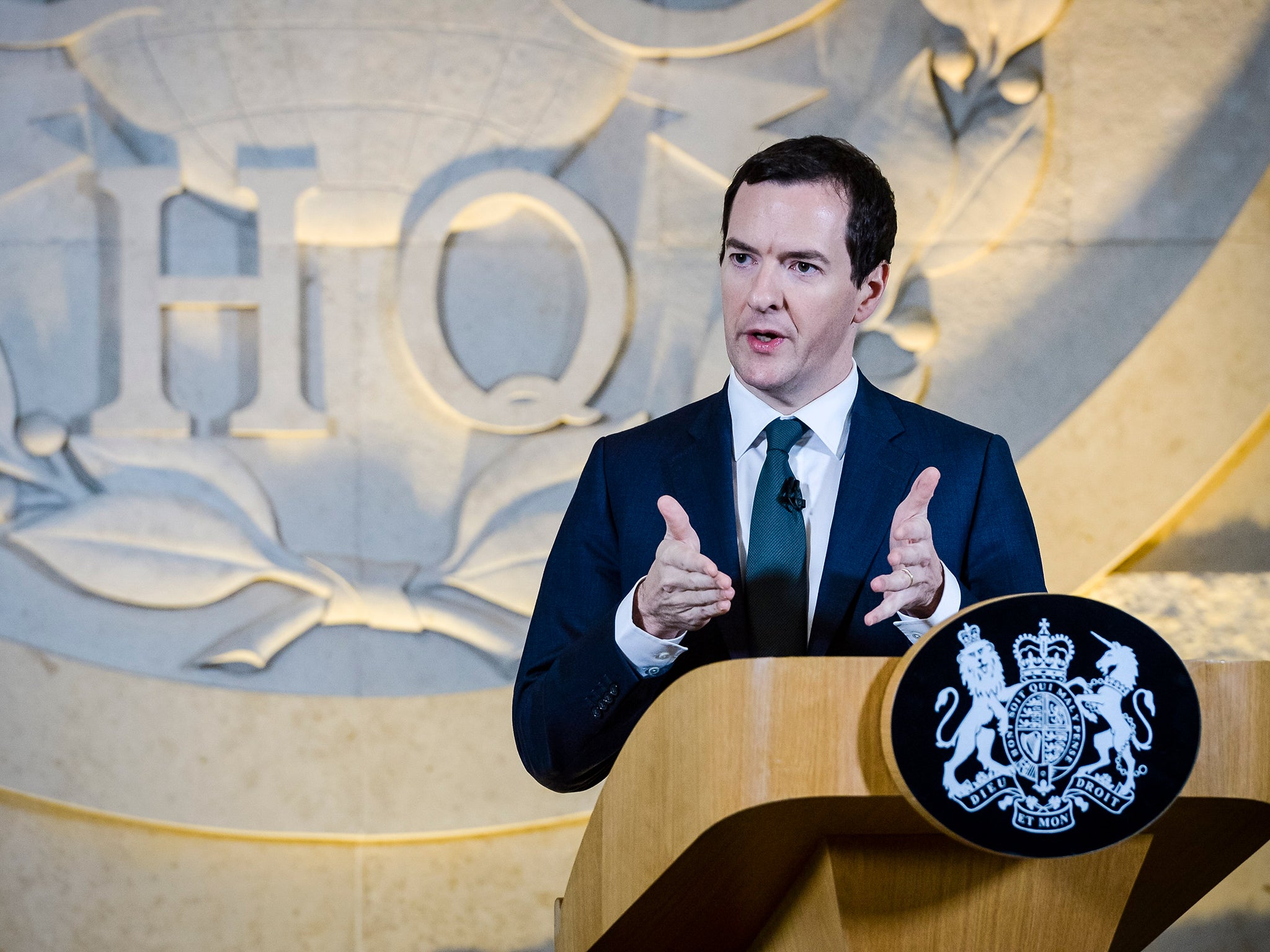Labour is determined to take a different path from the Chancellor - one that will safeguard the health of Britain's economy
We are devising a new economic strategy, to go with our new brand of politics, that will drive the diversification, investment and innovation in key skills and technologies that is so sadly lacking


On Wednesday, George Osborne will stand up in the House and set out the trajectory of departmental spending over the next five years. In most cases, this trajectory will be on a firmly downward slant. Judging by the agreements already reached and announced with Government departments, budgets are going to be cut by over 20 per cent, and in some cases considerably more.
But returns from the Chancellor’s austerity obsession are rapidly diminishing. ONS figures released last Friday show that Mr Osborne’s strategy is not working. October’s borrowing figures are 16 per cent higher than this time last year. He is, once again, going to miss his own self-imposed targets. Yet, despite this, there is little doubt that, come Wednesday afternoon, the Chancellor will prescribe another hefty dose of his austerity medicine. Indeed, he will have little choice if he is to meet his targets at all. The Chancellor is immured in a trap of his own making, and his infatuation with narrow dogma and temporary fixes is placing the long term health of the UK economy in jeopardy.
The Labour Party is determined to take a different path; a path that will safeguard the health of the UK economy both now and in the future. We are in the process of devising a New Economic strategy, to go with our new brand of politics, that will drive the diversification, investment and innovation in key skills and technologies that is so sadly lacking from Mr Osborne’s approach.
In doing so, we will work hand-in-hand with businesses, entrepreneurs, scientists, trade unions and wider civil society to shape the economy of the future. Governments cannot, as this one has, abdicate their responsibility for helping others to shape the future. The state has a strategic role to play in ensuring the huge technological changes ahead work for the benefit at all.
We need a step-change in how government, civil society, and businesses operate. And we can learn from the good examples elsewhere in the world on how to do this. For example, let us take Finland in the early 1990s. Finland’s main exports were timber and wood products. The collapse of the Soviet Union hit it hard, with unemployment shooting up past 20 percent. The Finnish government’s response was to develop a society-wide strategy to transform Finland into one of the world’s leading high-tech exporters. At the heart of this transformation was the Science and Technology Policy Council, chaired by the Prime Minister, which brought together businesses, scientists, and wider civil society to lead the shift.
Spending on research and development rose, and as a result Finland’s emerging high-tech clusters were supported. Aspirations to change course were matched by real commitments of public resources.
The next Labour government would learn from the Finish example, orchestrating the response of the public and private sectors in a collaborative effort to diversify and innovate. This is so that the UK becomes not just the financial centres of Europe, but also its hub for emerging technologies too. We will look to establish a National Prosperity Council, reconnecting the top levels of decision-making with workplaces and communities through representation from businesses, universities, unions, and civil society.
We will further ensure resources are committed, from both public and private sources, to fulfil our aim that 3 per cent of GDP is spent on research and development by 2030. The Tory government at present spends just 0.5 per cent of GDP on research, and under George Osborne, this has been cut by £1bn in real terms.
However, building the sinews of this new economy is not just about the investment in things. It is also about having an economy that works for and invests in people too. The world has changed, and the way we work is changing with it. Therefore, we need a government that is prepared to tackle this and offer a new social contract for workplaces of the future.
The Chancellor’s short-term obsession to close the fiscal deficit today is creating a deficit with the future. This is one that the next generation will struggle to close if our economy is not properly equipped today.
We need a government that recognises that both recognises these long-term problems, and has the courage to take a lead in the new opportunities of the new world or work, and not hide behind sort-term solutions.
John McDonnell is the shadow Chancellor of the Exchequer
Join our commenting forum
Join thought-provoking conversations, follow other Independent readers and see their replies
Comments
Bookmark popover
Removed from bookmarks